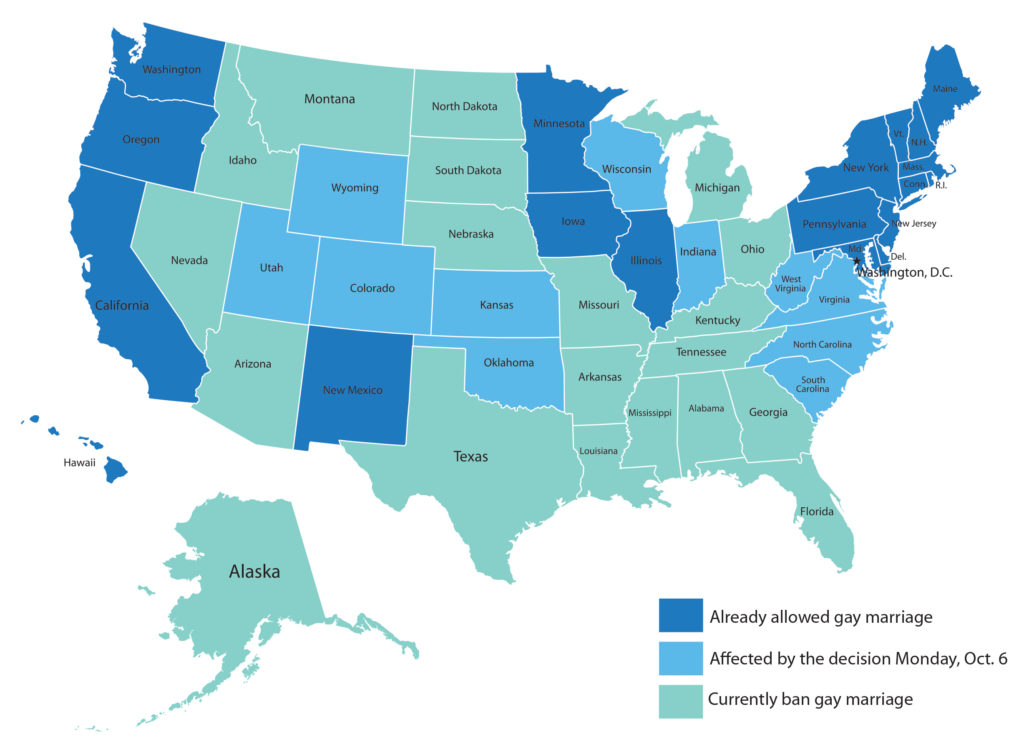by Aaron Earls
The Supreme Court didn’t say anything about same-sex marriage on Monday, but the silence was deafening.
In refusing to hear appeals by the states, it left intact federal court rulings that permitted same-sex marriage in Utah, Oklahoma, Virginia, Wisconsin, and Indiana. In those states today, same-sex couples can now receive state marriage licenses, reports USA Today.
The Supreme Court’s decision means that for the first time, more Americans live in states where same-sex marriage is legal than those who do not.
The ruling also seemingly sealed the fate for six other states—North Carolina, South Carolina, West Virginia, Kansas, Colorado, and Wyoming—who fall under the jurisdiction of appellate courts that struck down same-sex marriage bans, according to Lyle Denniston of the legal analysis site SCOTUSblog.
Colorado’s Attorney General instructed county clerks yesterday to begin issuing marriage licenses, reported the Denver Post.
Once the gay marriage bans in those six states are officially overturned, 30 states will recognize same-sex marriage.
Numerous other cases concerning marriage laws are currently making their way through the court system.
The Ninth Circuit Court of Appeals is expected to rule soon on same-sex marriage in its jurisdiction. Denniston predicts the Ninth Circuit will most likely overturn prohibitions in its jurisdiction due to an earlier ruling that struck down California’s Proposition 8, the state’s constitutional amendment establishing marriage as between one man and one woman.
If this happens, five more states—Alaska, Arizona, Idaho, Montana, and Nevada—would allow same-sex marriage, Denniston writes.
Residents of Kentucky, Michigan, Ohio, and Tennessee should also soon find out what will happen to their same-sex marriage bans, as the Sixth Circuit is currently weighing their decision.
Challenges to marriage laws in 10 other states—Texas, Louisiana, Arkansas, Missouri, Nebraska, South Dakota, North Dakota, Alabama, Florida, and Georgia—are at various stages of appeals.
In response to today’s ruling, Russell Moore, president of the Ethics and Religious Liberty Commission, said Christians should avoid responding in two negative ways—jettisoning Christian sexual ethics to accommodate modern cultural mores or taking on a siege mentality in opposition to the people we are trying to reach.
He challenged Christians to continue living out their faith. “Let’s love our gay and lesbian neighbors. Let’s move forward with persuasion and with confidence. This is no time for retreat or for resentment. This is a time for mission,” he wrote.
Aaron Earls (@WardrobeDoor) is online editor of Facts & Trends.







